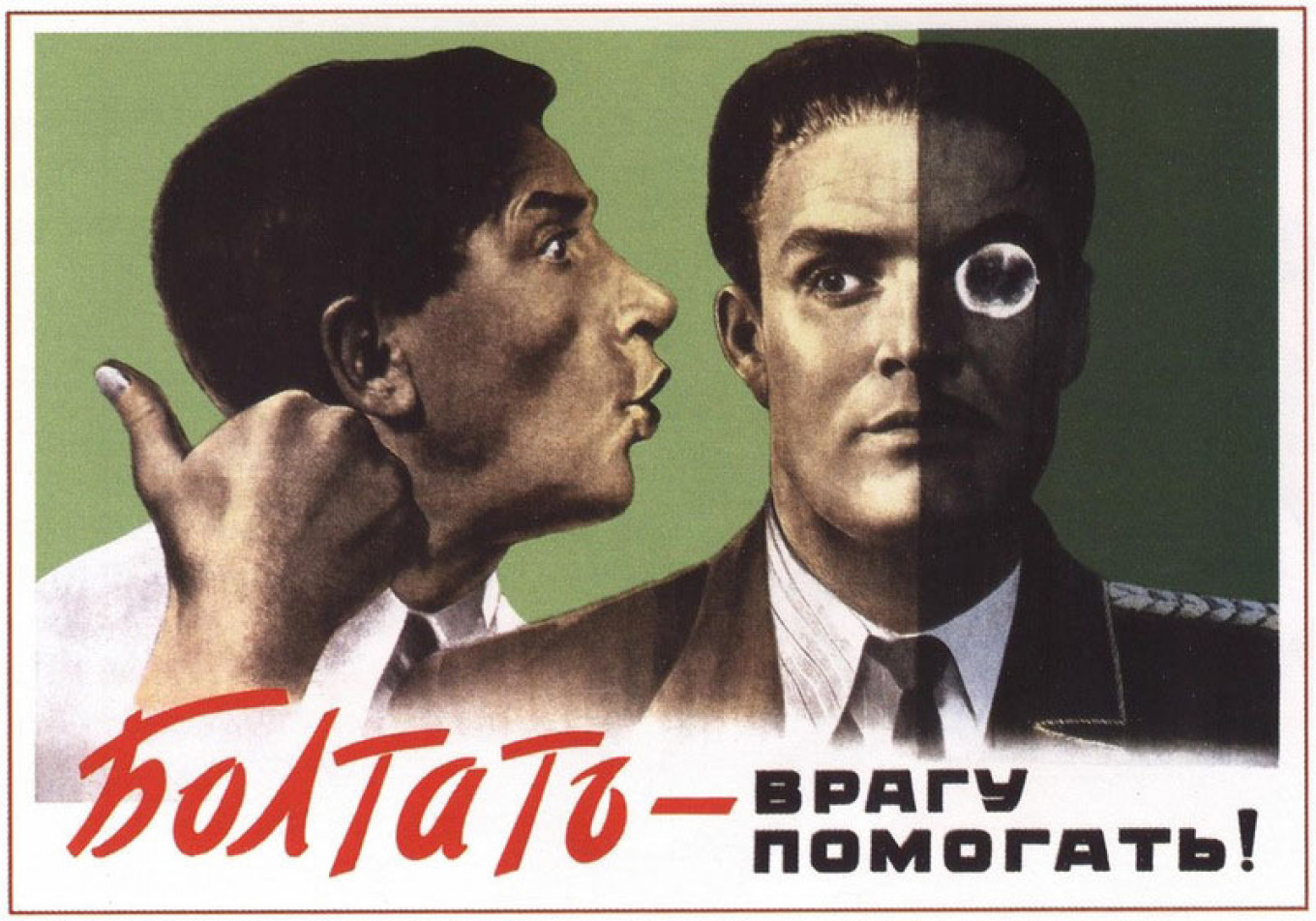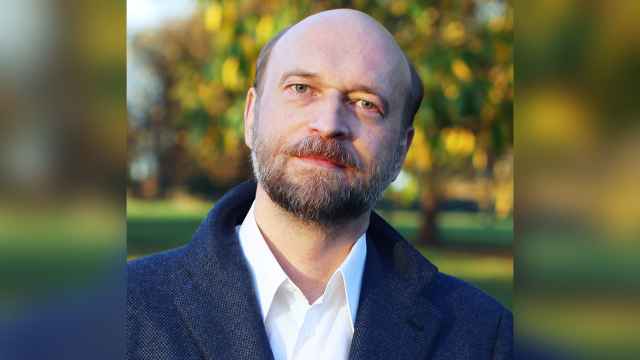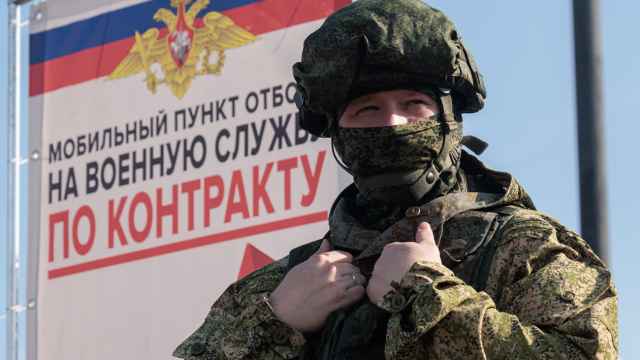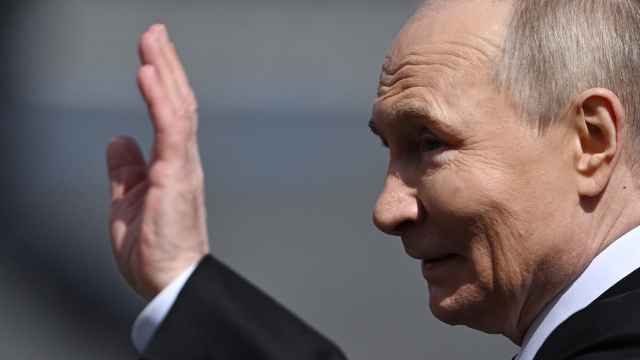Most foreigners who have spent extended periods of time in Russia can recall advice given to them before their arrival. For government officials, it comes as an institutionalized briefing from their security services. For journalists, scholars, and students, it often comes as wisdom passed down from previous generations of Russia watchers.
For both, the mantra is the same: assume you are being watched.
In modern Moscow, this advice can be easy to forget. The city is a bustling cosmopolitan metropolis like any other. But when Briton Jonathan Haslam first visited as part of a six-month graduate exchange in 1977, the Russian capital was another world. As a foreigner in a closed society, his very presence and interest in the Soviet Union aroused deep suspicion.
“The assumption was that foreigners were spies,” he recalls. This was implicit in the way the Soviets handled visitors like Haslam. There were strict restrictions on where foreigners could live, and the authorities monitored their daily life – both covertly and overtly.
“Their aim was largely to deter you, to give you the impression of total coverage,” Haslam says.
That was the Cold War. Much has changed since 1977, but the spectre of unwanted government attention still hangs over the ranks of Moscow’s foreign population to this day — as recent allegations that Russia may have blackmail on U.S. President-elect Donald Trump show.
But much like the unsubstantiated Trump allegations, many cases of surveillance remain difficult or impossible to prove. State-sponsored snooping is real, but perceptions greatly outpace reality. The conflict adds a degree of paranoia to daily life in Moscow.
Back in the USSR
From a historical perspective, foreigners are not wrong to fear surveillance. The Soviets were unparalleled masters of the art, argues Haslam, now a historian at the Institute for Advanced Study in Princeton, New Jersey and the author of Near and Distant Neighbors: A New History of Soviet Intelligence, a recent book on the subject.
“They had a vast number of people to call upon for following foreigners, something Western services could not match,” he says. “Any girl you went out with would be questioned after your meeting, and then obliged to report on you. Most tour guides were just students on holiday jobs, and they were really there to report on any unusual behavior.”
In Haslam’s time, students from capitalist nations were confined to the first six floors of an Academy of Science’s hotel, which were heavily monitored. Soviet authorities did not always go to great lengths to conceal their efforts.
At the hotel, cleaning staff would regularly sift through papers left by students on their desks. Rooms were obviously bugged. Once, when Haslam broke his morning routine to retrieve a forgotten item from the room, he walked in to find the housekeeper perched atop a stool, talking to a fire alarm on the ceiling.
The fire alarm, it seems, was wired to a central nervous system of surveillance tech hidden away on one of the hotel’s 12 floors. That floor was inaccessible from the main elevator, but Haslam says he once stumbled upon the entrance while exploring the back stairwell. An employee had left the door wide open, and Haslam decided to have a peek. Inside, he discovered a room filled with banks of tape recorders.

New Surveillance, New Russia
That chance encounter with an open door offered Haslam a glimpse behind the curtains of Soviet surveillance. But it was just one facet of a broad-spectrum effort that Katy Pearce, an expert on media and surveillance in the former USSR, recently described in the Washington Post as a “tedious, costly analogue process involving phone tapping, stakeouts, following people, and lots of photography and videotaping.”
The Soviet collapse in 1991, however, “democratized surveillance,” Pearce argues.
What was once the exclusive forte of a monolithic state apparatus became the bread-and-butter of thousands of former KGB agents, sent out into the cold without work. To make ends meet, they began plying their trade in the private sector, working for Russia’s emerging class of oligarchs. As a result, blackmail came to play an outsized role in the topsy-turvy world of 1990s Russia.
Prominent politicians and businessmen had their phone calls surreptitiously recorded and leaked to the press. Rumor and blackmail became tools of the political trade.
In 1999, Russian President Boris Yeltsin even used a compromising sex tape to take down the prosecutor general, Yury Skuratov, who was investigating him for corruption. The man who orchestrated the operation was none other than Vladimir Putin, who then served as the head of the Federal Security Service (FSB) — a scaled-down remnant of the Soviet KGB.
Such cases bolstered the mythology of surveillance. The Soviet collapse had opened the floodgate, and thousands of foreigners poured into Russia. With high profile surveillance cases proliferating, many foreigners seemed to believe that they, too, were under watch. That was one of the “social oddities” of Moscow life, says Matt Taibbi, an American journalist who worked here in the 1990s and early 2000s.
“Foreigners love to talk about how their phones are tapped,” he wrote in a 1997 article published in The eXile, a popular but now-defunct Moscow-based alternative publication. “They like the idea that someone considers them important enough to be worthy of listening to.”
In comments emailed to The Moscow Times, Taibbi says that, in his view, 95 percent of expats have nothing to worry about. The only real targets are certain prominent businessmen, diplomats, lawyers, and a few journalists.
Taibbi cites his own experience as an example. Reporters working for The eXile were notorious for outlandish, sometimes tasteless stunts, and muckraking investigative work. Taibbi once published transcripts of a former Kremlin chief of staff’s phone calls. The records were obtained, naturally, through surveillance. For his efforts, he says he was never followed and his phones were not tapped.
“I had basically begged to be arrested/surveilled,” he says. “[The fact that] I wasn’t told me that the ordinary expat has little to fear when it comes to surveillance.”
Modern Techniques
Technology has undoubtedly changed surveillance as electronic recording devices (i.e., “bugs”) grow smaller or give way to cell phones and other networked devices – offering intelligence services a far more efficient means of tracking their targets. “Everything with bugs has been tried, phones are better,” a former U.S. diplomat in Moscow said on a strict condition of anonymity.
The methods may have changed, but surveillance – both real and imagined – persists.
In recent years, the Russian government has used surveillance to bust corrupt officials and keep tabs on opposition figures, at times even infiltrating communications mediums like encrypted messenger applications. Russia has also been accused of taking its efforts abroad, hacking networks in foreign countries — such as the recent allegations that Russia hacked to help Trump win the presidential election.
But compared to the Soviet Union, modern Russia is an open society. The average foreigner is not likely to arouse much suspicion. As such, it is diplomats — particularly Americans — who arouse the strongest suspicion among Russian spooks. Even before the recent collapse of U.S.-Russia relations, Russian efforts appear to have become primarily focused on the U.S. Embassy and its staff.
In recent years, the harassment of U.S. diplomats has also increased.
The former U.S. Embassy Moscow official recalled being approached by an officer of Russia’s SVR foreign intelligence service after he was transferred from Moscow to Beijing. The SVR agent “pitched” the official while he was applying for a Russian transit visa to spend two days in Moscow en route to Europe.
The pitch began as an innocuous request to retrieve medicine for the Russian in Moscow. The diplomat was told he would be provided with additional instructions upon receiving his visa a week later. This was the red flag, and the American sent his secretary to retrieve the visa in his place. When the Russian, undeterred, emailed the diplomat directly to follow up, the American notified embassy security.
The incident, as told by the former diplomat, sparked a minor spy game in Beijing. Embassy security presented him with a photo line-up of known SVR operatives in Beijing, asking him to identify the official. He was in the line-up. After that, American security officials impersonated the diplomat in a reply email and arranged their own meeting with the Russian, turning the game back on him.
While Americans working at the embassy are natural targets for Russian intelligence, so too are the hundreds of local Russian employees hired by the U.S. to help run the day-to-day at the sprawling embassy compound. One former local employee told The Moscow Times of an incident in which he was actively chased by FSB officers through central Moscow.
Another Russian, who asked to remain anonymous, recalls being warned of intense pressure from the FSB when interviewing for a job with the embassy in 2013. Eight months later, the FSB followed up with the Russian to ask if she received the job. She hadn’t. But Russians like her are perhaps one of the embassy’s biggest security vulnerabilities.
The former U.S. Embassy official, who worked for one of the American security agencies, estimates that “around 50 percent of the local hires probably have some relationship with the FSB.”
“They have access to HR files, medical files, everything. The embassy does not have the resources to track them. And the local employees have details on everything that is happening — who is taking part in delegations, what they are going to be doing, where they will be staying, which rooms they will be staying in, etc. Nothing is secret,” the former diplomat says.
The U.S. Embassy declined to comment, describing it as an "internal management" issue.

Both Real and Imagined
Diplomats and embassy workers draw the heaviest attention from Russian intelligence services, but their gaze has been known to occasionally fall upon Western journalists and academics as well — albeit with less intensity. And while Russia targets diplomats to coerce and turn, their interest in journalists and scholars appears to be just as Haslam said of Soviet intelligence: to deter and intimidate.
One Western journalist, on a condition of anonymity, told The Moscow Times that his apartment was broken into following a particularly contentious reporting assignment in September. Nothing was stolen or damaged, but items were overtly rearranged — a tactic that former Guardian correspondent Luke Harding claims he was subjected to regularly during his tenure in Moscow from 2007 to 2011.
Ilan Berman, vice-president of the American Foreign Policy Council think tank in Washington, had a different experience in 2013 while visiting Moscow to meet with local government and civil society officials. Berman, who has written extensively on the demographic demise of Russia and its implications for the future of the Russian state, says his phone’s data plan was shut off for a portion of his stay.
Traveling as part of a delegation, Berman says none of the other foreigners traveling with him experienced similar problems. And it wasn’t a telecoms glitch or widespread outage — he checked with the company.
“I realized that it was just the FSB’s way of saying hello… albeit not a very nice one,” Berman says.
Or was it? It is a thought that crosses the minds of many a foreigner when encountering otherwise mundane or random technological glitches. In this way, for every successful infiltration of a foreign phone, there are countless more infiltrations of foreign psyches.
One American resident of Moscow interviewed by The Moscow Times recalled coming home one day to find his television – which he seldom watched – turned on. There was no sign of a break-in, and he wondered if the security services were trying to send him a message. Later, after talking with a friend, he concluded it was caused by a power surge.
Another – an American lawyer with years of experience in Russia – recalled a time when two of his friends received Google alerts informing them that someone in Moscow had tried to enter their accounts. At the time, the American was working for a human rights organization, and often communicated with these friends on Google Chat during working hours. Surveillance or strange coincidence?
Such paranoia is common, fueled both by real instances of surveillance reported in the media and a persistent set of myths and stereotypes about Russians and their espionage capabilities. The recent furor over alleged Russian hacks of the Democratic National Committee, and unsubstantiated accounts of a certain president-elect’s sex romps in a high-end Moscow hotel, have mostly just bolstered the mythology.
But not everyone buys into the hype.
“I’ve always perceived the Russians to simply be very proficient and professional at intelligence work,” says journalist Taibbi. “I wouldn’t think you would have all these people in the Russian [security services] blabbing about a piece of [compromising material] on a potential American president,” he says. “That doesn’t scan to me.”
A Message from The Moscow Times:
Dear readers,
We are facing unprecedented challenges. Russia's Prosecutor General's Office has designated The Moscow Times as an "undesirable" organization, criminalizing our work and putting our staff at risk of prosecution. This follows our earlier unjust labeling as a "foreign agent."
These actions are direct attempts to silence independent journalism in Russia. The authorities claim our work "discredits the decisions of the Russian leadership." We see things differently: we strive to provide accurate, unbiased reporting on Russia.
We, the journalists of The Moscow Times, refuse to be silenced. But to continue our work, we need your help.
Your support, no matter how small, makes a world of difference. If you can, please support us monthly starting from just $2. It's quick to set up, and every contribution makes a significant impact.
By supporting The Moscow Times, you're defending open, independent journalism in the face of repression. Thank you for standing with us.
Remind me later.






